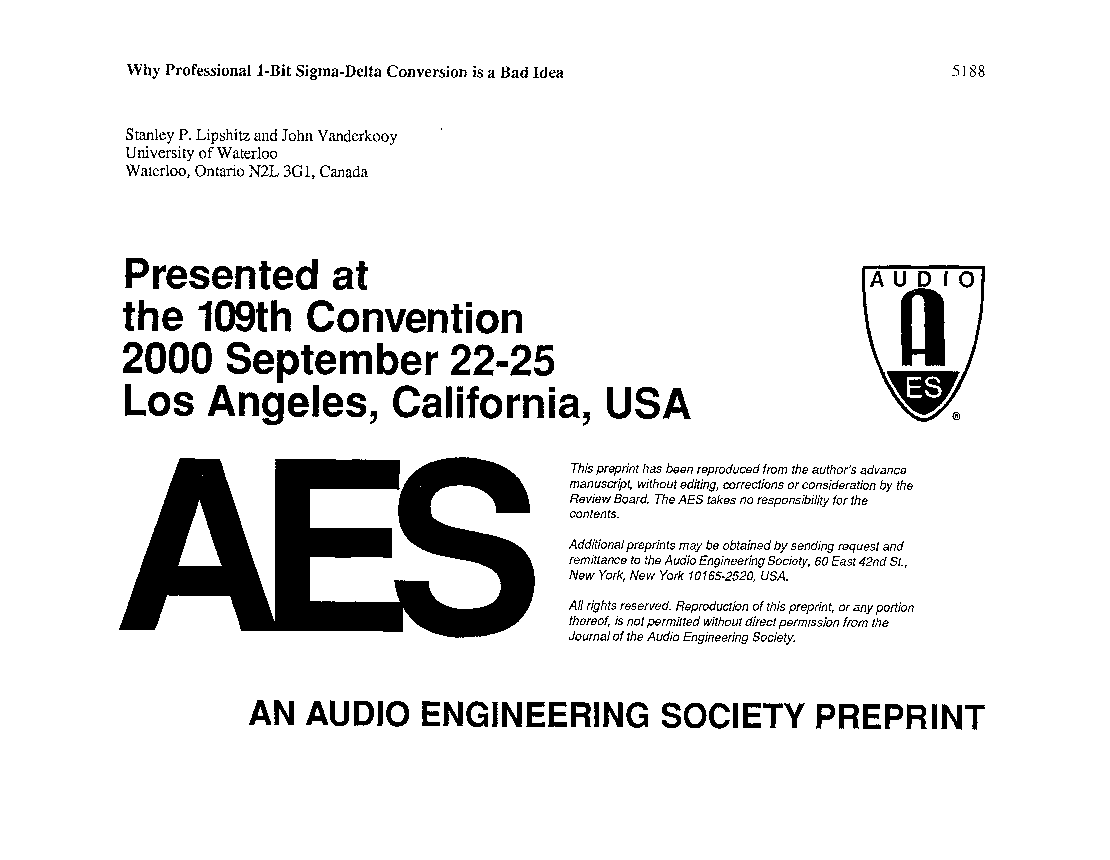Home / Publications / E-library page
You are currently logged in as an
Institutional Subscriber.
If you would like to logout,
please click on the button below.
Home / Publications / E-library page
Only AES members and Institutional Journal Subscribers can download
Single-stage, 1-bit sigma-delta converters are, in principle, imperfectible. The authors prove this fact. The reason, simply stated, is that when properly dithered they are in constant overload. The consequence is that distortion, limit cycles, instability, and noise modulation can never be totally avoided. Recording, editing or storage systems based upon single-stage, 1-bit sigma-delta conversion and, in particular, professional systems using this type of conversion are thus a bad idea. In contrast multibit sigma-delta converters, which output linear PCM code (here, multibit refers to five or so bits in the converter), are in principle infinitely perfectible. They can be properly dithered to guarantee the absence of all distortion, limit cycles, and noise modulation. The audio industry is making a tragic mistake if it adopts 1-bit sigma-delta conversion as an archival format to replace multibit, linear PCM.:
Author (s): Lipshitz, Stanley P.; Vanderkooy, John
Affiliation:
University of Waterloo, Waterloo, Ontario, Canada
(See document for exact affiliation information.)
AES Convention: 109
Paper Number:5188
Publication Date:
2000-09-06
Import into BibTeX
Session subject:
Digital Signal Processing
Permalink: https://aes2.org/publications/elibrary-page/?id=9150
(200KB)
Click to purchase paper as a non-member or login as an AES member. If your company or school subscribes to the E-Library then switch to the institutional version. If you are not an AES member Join the AES. If you need to check your member status, login to the Member Portal.

Lipshitz, Stanley P.; Vanderkooy, John; 2000; Why Professional 1-Bit Sigma-Delta Conversion is a Bad Idea [PDF]; University of Waterloo, Waterloo, Ontario, Canada; Paper 5188; Available from: https://aes2.org/publications/elibrary-page/?id=9150
Lipshitz, Stanley P.; Vanderkooy, John; Why Professional 1-Bit Sigma-Delta Conversion is a Bad Idea [PDF]; University of Waterloo, Waterloo, Ontario, Canada; Paper 5188; 2000 Available: https://aes2.org/publications/elibrary-page/?id=9150